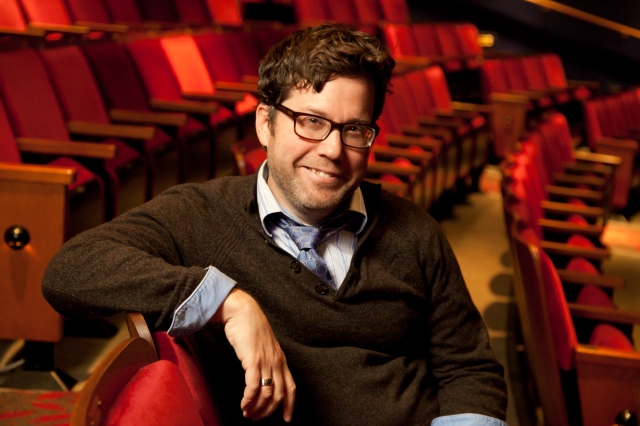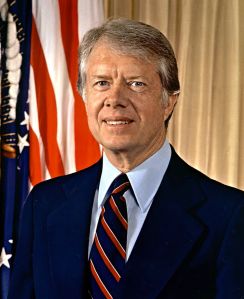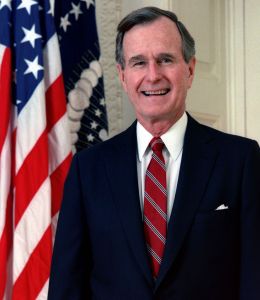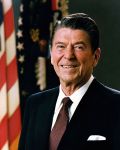Submitted by Anonymous on
MRT Artistic Director Sean Daniels has been directing 45 Plays for 45 Presidents since it was 43 Plays for 43 Presidents. He shares his favorite insights over the decades:

Director Sean Daniels. Photo by Meghan Moore.
What grabbed you about this play the first time you encountered it?
I thought it was so smart, and so well-done. How often do you get to see a full American civics lesson in less than two hours? To see the choices we’ve made as a country, over and over again?
I produced it and directed it in Atlanta, before the 2004 election. Not only was it a big hit, but Jimmy and Rosalynn Carter came to see it.

That must have been something!
We had only gotten notified like 36 hours in advance that he was coming—but if word got out and it had become too big a deal, he wouldn’t have come. So we had to not tell anybody, and we had to set up a secret service area in the back. That entire audience had no idea he’d be there. He had just won the Nobel Peace Prize the week before, so we adjusted his costume to put a Nobel Prize on it.
Do audiences react differently to this than to other plays?
So often in theatre, we say we want to be a catalyst for conversation, and we want to be a community center, and we want to be a place where people can come and talk, but we don’t succeed at that a lot of the time. The vast majority of the time, even.
But this was the type of show that every time we did it, people just stayed in their seats and discussed afterwards.
What are they staying to talk about?
You find that we all share the same opinions about the first 16 presidents. Everyone loves George Washington. There really aren’t anti-George Washington people.
Then for presidents 17-32, no one really remembers exactly what happens in there. But everyone loves Teddy Roosevelt.
But when we get to the end of World War II, the audience wakes up in a certain way. Because suddenly everyone has opinions about these people, and the vast majority of the audience has lived through these experiences. Suddenly when we talk about Reagan, everyone feels very strongly, one way or the other, about what it all means.
You keep coming back to it over the years. What makes that exciting?
Eight years ago, when the audience got to vote on who was going to take over, Obama won all the night shows and McCain won all the matinees. In the audience, people just went crazy. One guy walked out and gave the bird to everybody.

Of course four years later we felt differently about Obama than we did at that time—and now eight years later, we definitely feel differently still. So one thing that’s exciting for me is that the writers have to continually update it, because public ideas change.
Do ideas change of older presidents, too?
This year we’re rewriting George Hebert Walker Bush, who I thin

k time has been kinder to. In his era, most liberals thought he was terrible. But a lot see him differently decades later. One of the themes of his campaign was a “kinder, gentler nation.” You can’t even imagine a Republican nominee running on the idea of a gentler America now.
Also—you realize that some of the problems we have now are not just because one president or another is evil. It’s because years or decades before, some policy got put in place—but it takes time to really play out. It’s easy to get tiny and myopic on politics. But if you take a step back and say, “many of these things we’ve been through before—and in some cases we’ve made the same mistakes over and over again”—it’s helpful, in terms of taking the long view.

45 Plays for 45 Presidents opens September 7. Tickets on sale now: www.mrt.org/45Plays



